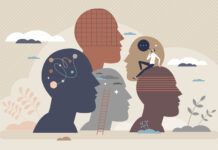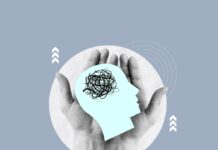“Some autistic adults have spent much of their lives with the wrong diagnosis, consigned to psychiatric institutions or drugged for disorders they never had,” Jessica Wright writes in The Atlantic.
-
Oh yes – and it’s still happening.
https://vimeo.com/22527996
Despite what I say at the end of this video made 4 years ago drug reduction never did take place. Like hundreds of others, my adult son is trapped in a system that doesn’t recognise or understand that inappropriate treatments can induce mental illness. -
What an incredible sentence…
““Some autistic adults have spent much of their lives with the wrong diagnosis, consigned to psychiatric institutions or drugged for disorders they never had,”
There is no “right” diagnosis; psychiatric diagnoses lack validity and reliability period.
People don’t have or not have disorders; these disorders don’t exist as separable entities. Rather, continuums of different developmental problems (such as psychosis or depression) exist but each person’s position on the continuum is unique, and not only that, but is constantly shifting on a day to day and even hour to hour basis. This goes for the autistic spectrum too.
-
BPD,
Perhaps I am misinterpreting your post but even though autism doesn’t belong in the DSM, it is definitely a legitimate diagnosis based on my experience in working with students with the condition and also knowing many adults on the spectrum.
Because the condition is greatly misunderstood generally in society, I can definitely see why psychiatry would be completely clueless about it and want to peg it as something else.
As I keep saying, just because something is erroneously in the DSM, doesn’t mean it isn’t legitimate. Otherwise, sleep apnea which incredibly is in there, would be a bogus diagnosis. 🙂
-
Does Autism exist, yes, I also work with those with Autism, equally though it is also a condition that is now being extended and extended. Anyone who is shy is now being diagnosed with autism. Does it benefit them, NO. Go to silicone valley, 99% of the adults there would qualify for a diagnosis of autism, do they have it no, do they need it, no. What you see instead are incredibly happy people, doing what they love, surrounded by people who also do what they love and who they have a lot in common with.
I do not read much of the adults in this article as having autism, and I also do not see any special autism treatments being provided. What has happened instead is that they have been most importantly removed from psychiatric medications, and then given basic human supports, which would have helped anyone with any label. Lets get someone to take them to a doctor to look after physical health problems – common sense really, but not done in the mental health system. Instead they put them on 18 different medications and then wonder why they cannot speak. It is not considered wrong to have an adult they consider correctly diagnosed with the condition wrong to be so doped up that they can’t speak, just if they suddenly decide it is the wrong diagnosis.
Anything that does not have a blood test or something else to label it is in the DSM, autism does not have a physical diagnosis and given how wide it is now being diagnosed, then one questions what part of it belongs in the DSM.
There is also a massive growth in children with language problems, due to parents simply not speaking to them. Children today hear on average less than 50% of the words their parents heard as children. In order to learn to speak, one has to hear language. we have parents who put children in front of the TV within days of birth and the babies become dazed by the bright lights and sounds. They don’t cry so parents keep doing it. In order to learn the two and fro of conversation, babies, babble, when they stop, parents speak to them, when the parent stops the baby babbles again. Children learn communication long before they can speak, but they do not learn that stuck in front of TV’s, iPad’s and the like. While a child might learn to speak from listening to the TV they hear language, they do not learn the two and fro of communication, as they do not have a break in between. They often repeat what is said. It takes an incredibly skilled clinician to see the difference between poor child development that good quality parenting advice and speech therapy can assist with and those with true autism who need something completely different. Give them the wrong support and they do not gain. Equally we have hundreds of children with learning disabilities, who again are being labelled as autism, instead of being given the support they really need. No one gains from being given a diagnosis they do not have. The latest fad is to diagnose everyone with autism. Sometimes that is warranted and helps, other times it packs a label on them they do not need. It is OK to be different and OK to need support with some things.
-
AA:
I do not agree that autism (and other “disorders” with fancy names) are “legitimate diagnosis.” This is because these are diagnosed using a check-lists of behavior and there are no blood tests, tissue tests, X-rays, etc., and diagnosis made this way fails to meet the Virchowian standard of disease. Also, despite decades of research, scientists have not been able to find any structural or other brain differences between people who display these “mental illnesses” and healthy individuals. But once a person is told “you have this disease” (and are given the fancy name), it is devastating for the patient and all the stress from thinking that one has a mental disease (and somehow different from others) gradually triggers epigenetic and neuroplastic structural changes in the brain, and then the individual is really in need of help.
You cannot compare mental conditions with sleep apnea because sleep apnea has a detectable cause (of airways collapsing and becoming blocked during sleep).
These “mental disorders” with fancy names exist only in the psychiatrist’s mind.-
Nancy99,
I held off responding to your post because to be honest, I get very frustrated when I feel people are totally misinformed about a condition like autism. And by the way, it is not a mental illness so your logic in saying it isn’t legitimate doesn’t apply here.
So better than my trying to argue why your position is wrong, I suggest strongly you read this site thoroughly which is run by people with autism.
http://autisticadvocacy.org/home/about-asan/about-autism/
They describe it as a neurological variation that obviously can cause great difficulties in this world and need support in learning how to to cope depending on the situation.
Now whether a diagnosis is beneficial is another issue for me as I feel self diagnosis and learning coping mechanisms may be the best choice. But many people I know on the ASD spectrum said it as it explained the difficulties they were having trouble with that so many people without ASD don’t give another thought to. So I am not going to discount their experiences any more than I would of people who had the experience from h-ll with psychiatry.
Also, I know one person with autism who wouldn’t have gotten very far in school and in the work world without disclosing her autism and getting necessary accommodations. As always, nothing is ever a back and while situation.
-
AA,
In the advocacy site you have given, individuals there have already come to the conclusion that they “have autism,” and are discussing issues related to how they can “deal with it.” As I see it, labelling gives the impression to the patient (as well as to the general public) that doctors know all about these conditions (such as their biological causes, and appropriate treatment, etc.). But this is not at all the case.
Autism is often referred to as a ‘neurological disorder’ (which leads to talking about ‘neurological variation’) – if that is the case, why is it not possible to diagnose autism using an objective test (such as a blood test)? They use a vaguely worded checklist to diagnose ‘autism.’I agree that some people need support in learning how to cope with issues such as socializing or sensitivity issues. Rather than giving a label (i.e., without jumping into the conclusion that this person “has autism,” because they have a set of items on a checklist), perhaps these specific issues can be addressed for individuals. I also personally feel that mindfulness interventions could help such individuals enormously in addressing socializing or sensitivity issues.
There is a great deal of evidence that the ‘mind’ brings about changes in brain structure. So, when someone is told (given a label) that they have a certain ‘disorder,’ (that has a name with a “permanent” feel to it) that itself can result in a great deal of pain to the individual over time. Proliferation, worry, rumination, etc., leads to mental illnesses (many psychological studies support this) – this is accompanied by changes in neural structures. Labelling makes one think that they are different from others, are “doomed for life”, etc. Labelling also increases stigma (people make statements such as “that kid is autistic,” and even avoid them for more in-depth discussions about various matters, making things worse).
Some individuals outgrow autism (see: http://www.ncbi.nlm.nih.gov/pubmed/23320807 ). Is it possible that it is the label that prevents this from happening for all individuals?
-
Nancy, I agree with this thinking based on my comments below/above… this advocacy site contains the misleading idea that autism is a discrete condition that one has or doesn’t have. The ambiguity and gradual variation along a continuum or people who are progressively more or less withdrawn/troubled is lacking from their thinking. And as you implied we lack clear evidence that autism exists as a clearly discrete neurologically based disorder. I would not be surprised if the labeling is doing damage by reinforcing otherness and reinforcing the notion that autistic people are fundamentally different in a way that is impossible to change relative to normal people, something that may be false for many of them.
-
-
-
AA, I could be clearer. What I mean is that autism is not a “disorder” or discrete phenomenon one has 100% or doesn’t have. Autistic experience is a continuum and there is no clear boundary at which the Asperger’s higher functioning end of the spectrum begins. Nor can we precisely identify via biological correlates who has or doesn’t have the supposed discrete diagnosis.
The simplistic media people think one either correctly “diagnoses” autism 100%, or rules it out 100%, but reality is much more complex, uncertain, grey-shaded and subtle than that.
I am also a teacher who has worked with autistic children so I know that “it” is real, although there is no one “it.” There really are children who are extremely emotionally removed, cannot understand normal social cues, cannot relate outside of very basic primitive ways, relate much more to things than people, and so on.
Being or not being in the fake DSM doesn’t indicate much of anything.
-
-
-
Had been hard enough to find mh professionals who were familiar with the sensory disabilities much less heard of it. If psychiatrists aren’t looking for it, they don’t diagnose it.
There are still problems with recognizing and diagnosing female autism. Since medical providers are looking for stereotypical male autistic behaviors, female autism often gets missed. There isn’t much support around for those who can pass for “normal” but still struggle with many autism or asperger’s issues. -
It seems that autistic people hate that organization “Autism Speaks” they have a very active Boycott Autism Speaks Facebook page https://www.facebook.com/boycottautismspeaksnow/ and if you search google for Boycott Autism Speaks http://www.google.com/search?q=boycott+autism+speaks 100s of pages come up.
Check out this image too, LOL
http://autismhwy.com/blog/wp-content/uploads/2013/12/IMG_0876.jpg
-
-
“Many of us on the spectrum replace social relationships with intense areas of special interest. What, I wonder, will happen when the brain cells just can’t do quantum physics any more? Where will the model train collection acquired over 70 years fit in the constrained space of social housing or care homes? Will those of us who have lived a cocooned existence suddenly be expected to turn into social butterflies in a reminiscence group?
Homogenised solutions for care of older people are unlikely to work well for anyone. For people with autism, they can be damaging and distressing. Rigid routines and the ability to close the door on the world when it gets too much may be crucial to managing anxiety. With autism it is easy to be overwhelmed by sensory input from noise and people standing too close. Having a chirpy care worker turn up at unexpected hours to make small talk and suggest joining bingo at the day centre is unlikely to be of benefit, however well meant.
I hope by the time I need age-related support that health and social care professionals will appreciate the importance of consistency and routine in managing anxiety in autism. I’d like it if they understood why loud noises, unexpected touch and doors left open can be anathema. I’d prefer it if I’m not assumed to have mental health issues or the onset of dementia because my brain processes information differently.
Given the present lack of research, knowledge and training in ageing and autism, I’m not optimistic that any of this will have happened by then.”
-
I recently took part in an online web-chat on autism, and everyone was talking about what can be done regarding specific issues for their loved ones (or themselves) who “has autism.” I put up a comment saying that we need to question the assumption of “having autism” itself (we need to question the diagnosis process and the naming), and my comment was not even posted!
I do not disagree that some individuals may have certain habits, mannerisms, etc. (for example, the diagnosis-checklist for children currently contains items like “does the child point fingers at articles of interest,” “do they climb on things”, etc.). As I see it, if these are concerns to a parent, then they should be dealt with as specific habits that need to be altered in a compassionate way.
After a so called ‘diagnosis,’ if these children are being constantly told that they have some long term ‘mental illness’ and are also given drugs, then the situation becomes much worse gradually.
I am so convinced that it is the ‘mind’ that changes brain structure. Even the news item posted today “Talk Therapy Linked to Changes in Brain Activity” gives evidence for this. If there are any (short term) effects of drugs, it is because of the placebo effect.-
I think this is quite correct. The language of “having” or “not having” autism is completely misleading. As I said in my comment above, there is no sudden cut off point at which behaving or thinking in a withdrawn unrelated way becomes autistic or nonautistic.
-
BPD,
Yes, I agree with your comments. I have often seen statements such as: “experts think that finding a cure for autism is unlikely” and things of that sort.
-
-














